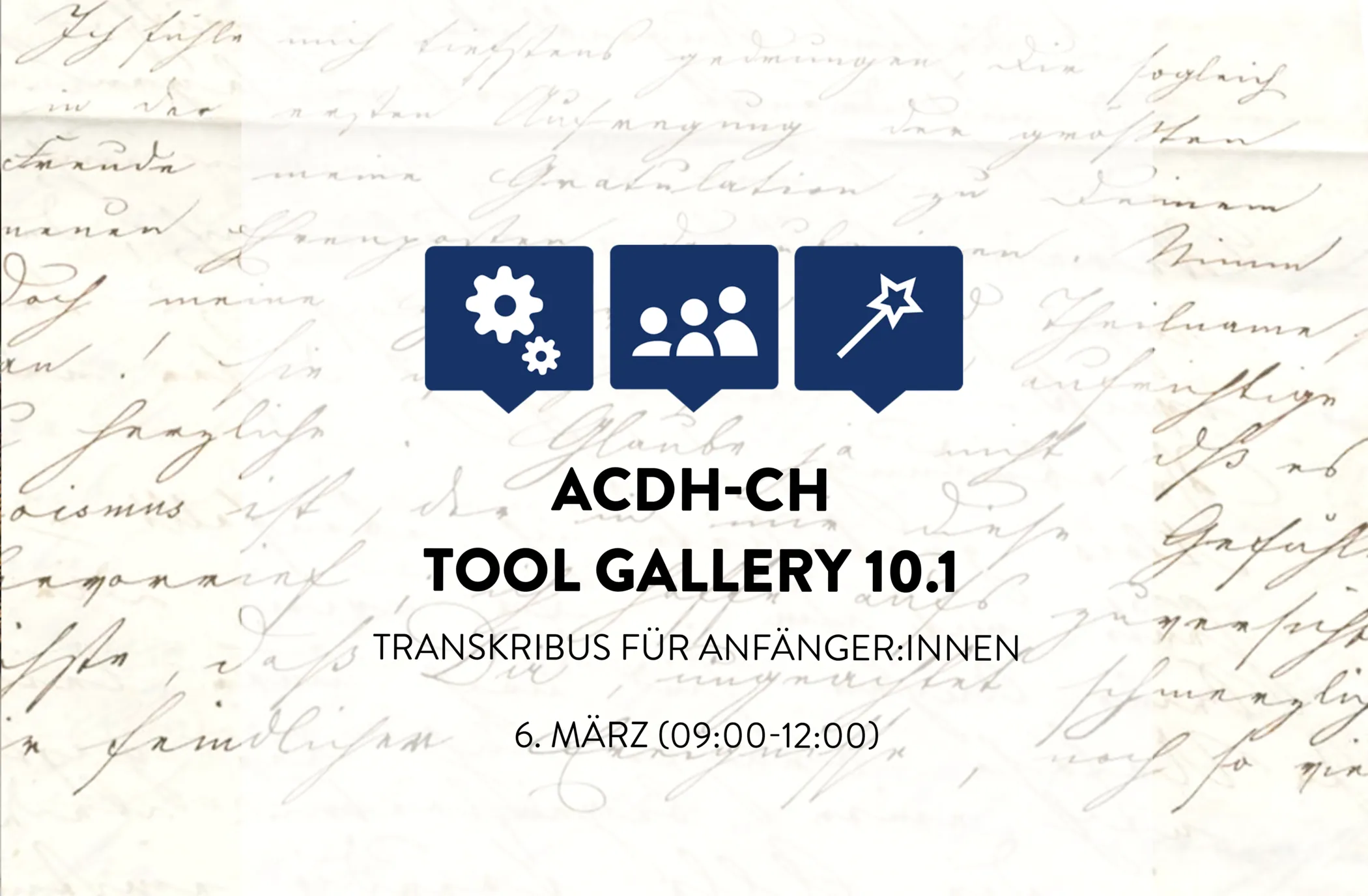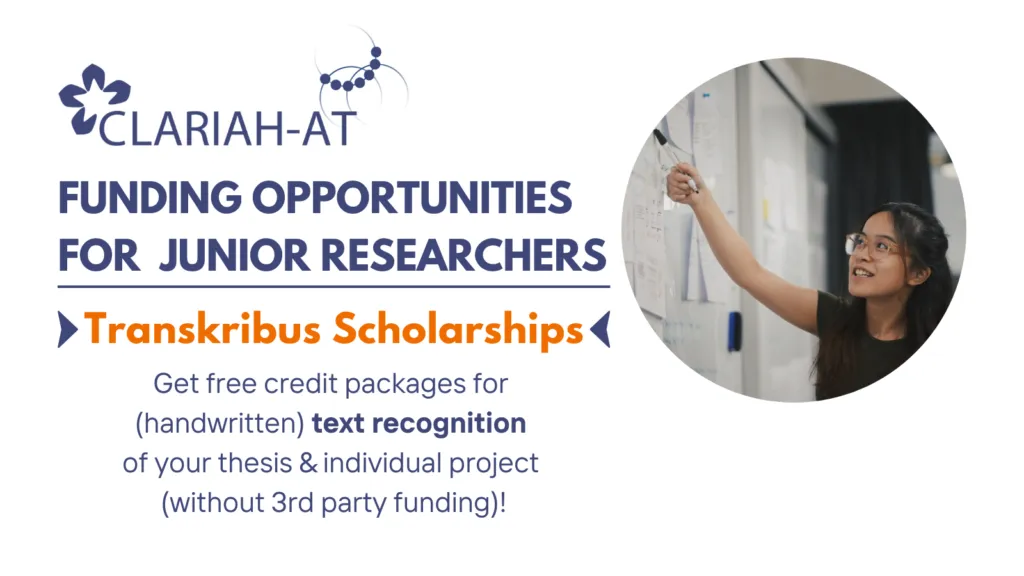
ACDH-CH Tool Gallery 10.1: Transkribus for Beginners
When: Wednesday, March 6th 2024; 09:00 – 12:00
Where Sitzungssaal, 1st floor, Austrian Academy of Sciences, Dr. Ignaz Seipel-Platz 2, 1010 Vienna
Registration: Please register in advance via this link . (The workshop will be held in German.)

Transkribus is one of the most popular tools for AI-based automated transcription of manuscripts and prints. Developed at the University of Innsbruck , users can access various tools and support from the community, which now has well over 100,000 users and is constantly publishing new models, thus making accessible and re-usable research available in the spirit of Open Science. In this Tool Gallery, participants will learn how to use Transkribus in order to utilise the possibility of automated text transcription for their documents.
Prerequisites & background Knowledge
To participate in this workshop, no experience with Transkribus is necessary. This workshop is not only aimed at digital humanists, those interested in fields such as local history, family history, history and document research are also cordially invited.
Please create a free account on the Read Coop SCE website ( https://readcoop.eu/ , -> Sign in -> Register) before the workshop (if you do not already have one). This account is a prerequisite for using the Transkribus app. As an ÖAW employee, you should use your work email address to register.
Please bring an internet-enabled laptop with a web browser installed to the workshop. You will need WLAN to access the ÖAW network. We provide guest access for external participants.
Lecturer
Robert Klugseder
Robert Klugseder is historian and Transkribus-specialist at the ACDH-CH, he has a wide range of practical experience from using the Transkribus tools for editing historical sources from the Middle Ages to modern times. Klugseder is a lecturer for Read Coop SCE, the operator of Transkribus, and regularly offers workshops and courses on the subject.
This event is organised by the Austrian Centre for Digital Humanities & Cultural Heritage (ACDH-CH) at the Austrian Academy of Sciences with the kind support of CLARIAH-AT.